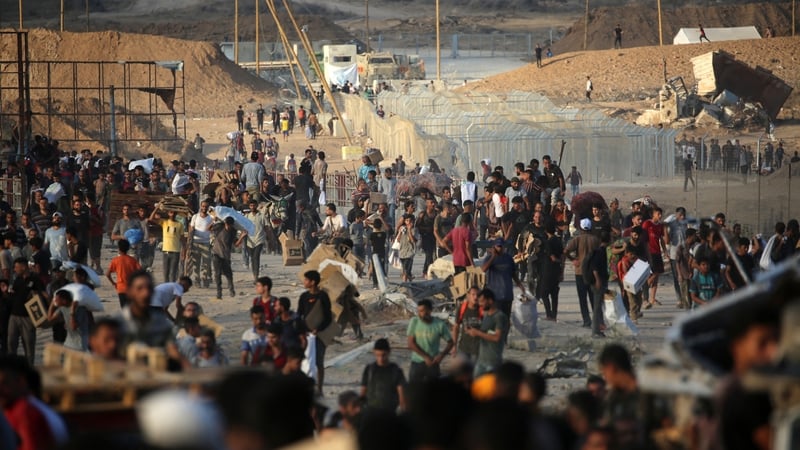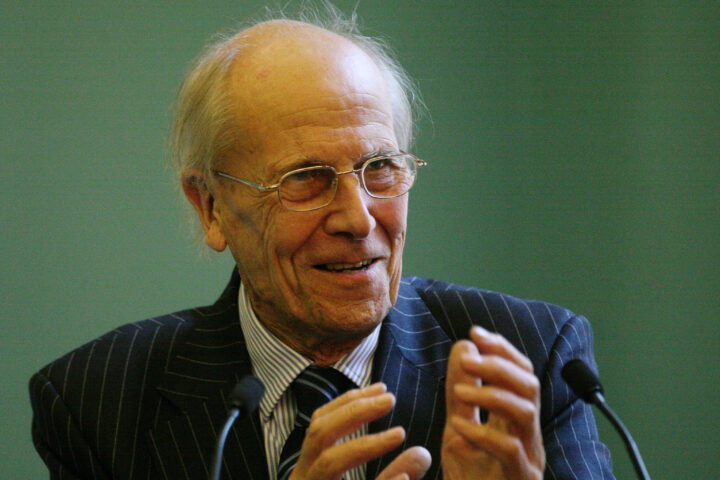The UN human rights office has said it had recorded at least 798 killings within the past six weeks at aid points in Gaza run by the US- and Israeli-backed Gaza Humanitarian Foundation and near convoys run by other relief groups.
The GHF uses private US security and logistics companies to get supplies into Gaza, largely bypassing a UN-led system.
After the deaths of hundreds of Palestinian civilians trying to reach the GHF’s aid hubs in zones where Israeli forces operate, the United Nations has called its aid model “inherently unsafe” and a violation of humanitarian impartiality standards.
“(From 27 May) up until the seventh of July, we’ve recorded 798 killings, including 615 in the vicinity of the Gaza Humanitarian Foundation sites, and 183 presumably on the route of aid convoys,” UN rights office (OHCHR) spokesperson Ravina Shamdasani told a regular media briefing in Geneva.
The GHF, which began distributing food packages in Gaza at the end of May after Israel lifted an 11-week-old aid blockade, claimed the UN figures were “false and misleading”.
It has denied that deadly incidents have occurred at its sites.
The OHCHR said it bases its figures on a range of sources such as information from hospitals in Gaza, cemeteries, families, Palestinian health authorities, NGOs and its partners on the ground.

Most of the injuries to Palestinians in the vicinity of aid distribution hubs recorded by OHCHR since 27 May were gunshot wounds, Ms Shamdasani said.
“We’ve raised concerns about atrocity crimes having been committed and the risk of further atrocity crimes being committed where people are lining up for essential supplies such as food,” she said.
The GHF said it had delivered more than 70 million meals to hungry Gaza Palestinians in five weeks, and that other humanitarian groups had “nearly all of their aid looted” by Hamas or criminal gangs.
The UN Office for the Coordination of Humanitarian Affairs (OCHA) has previously cited instances of violent pillaging of aid, while the UN World Food Programme said last week that most trucks carrying food assistance into Gaza had been intercepted by “hungry civilian communities”.
There is an acute shortage of food and other basic supplies 21 months into Israel’s bombardment of Gaza during which much of the enclave has been reduced to rubble and most of its 2.3 million inhabitants displaced.

Six killed in continued Israeli attacks – civil defence
The updated UN death toll figures come as Gaza’s civil defence agency said Israeli strikes have killed at least six people in the Palestinian territory’s north, including five at a school-turned-shelter.
“Five martyrs and others injured in an Israeli strike on Halima al-Saadia School, which was sheltering displaced persons in Jabalia al-Nazla, northern Gaza,” the agency said in a brief statement.
In a separate strike on Gaza City, to the south, the agency said at least one person was killed and several others wounded.
In central Gaza, the Al-Awda Hospital in Nuseirat said it received several casualties after Israeli forces had opened fire at civilians near an aid distribution point.
There was no immediate comment from the Israeli military, which has recently intensified its operations in Gaza.
Media restrictions in Gaza and difficulties in accessing many areas mean AFP is unable to independently verify the tolls and details provided by the civil defence agency and other parties.
A Palestinian speaking to AFP from southern Gaza on condition of anonymity said there were ongoing attacks and widespread devastation, with Israeli tanks seen near the city of Khan Younis.
“The situation remains extremely difficult in the area – intense gunfire, intermittent air strikes, artillery shelling and ongoing bulldozing and destruction of displacement camps and agricultural land to the south, west and north of Al-Maslakh,” an area to Khan Younis’s south, said the witness.

‘Absolute panic’
Meanwhile, UNICEF Communications Specialist for Children in Gaza said there were “absolute panic” yesterday after nine children were killed in an Israeli attack outside a health clinic in central Gaza.
Speaking to RTÉ’s Morning Ireland, Rosalia Bollen said mothers and children had gathered at the site, which had not yet opened, to receive therapeutic nutrition products for malnourished children.
She said the organisation distributing the aid was one UNICEF worked closely with and a UNICEF team was deployed to the scene in the aftermath of the strike.
“My colleagues went to the hospital, they interviewed several children and mothers,” she said.
“There was a mother of two boys, she lost her one-year-old and her 10-year-old is in the ICU.
“It was a very chaotic scene, there was absolute panic.
“Hospitals in Gaza are overwhelmed with a constant inflow of very severely injured people day in day out.
“These aren’t people with a couple of scratches or maybe light concussions, we’re talking about people who’ve lost limbs, who have shrapnel lodged in their bodies with very severe injuries that may be life changing.”

Ms Bollen said that in the first seven days of July, at least 100 children had been reported killed.
She said what happened yesterday was “not a unique case” and is the “daily reality” for families in Gaza.
She said families have been deprived of the basics that they need to survive, which has led to diseases, malnutrition and preventable deaths.
“There’s just not enough of everything. There’s not enough food, there’s not enough medicine,” she said.
“There’s no hygiene products, sanitary pads, nappies. It’s all very scarce, and this is engineered scarcity.
“We hope that we will be seeing a major change because what families in Gaza need is the mass influx of supplies today.”
Ms Bollen said UNICEF has continued to operate throughout the war and will continue to remain present along with other organisations.















